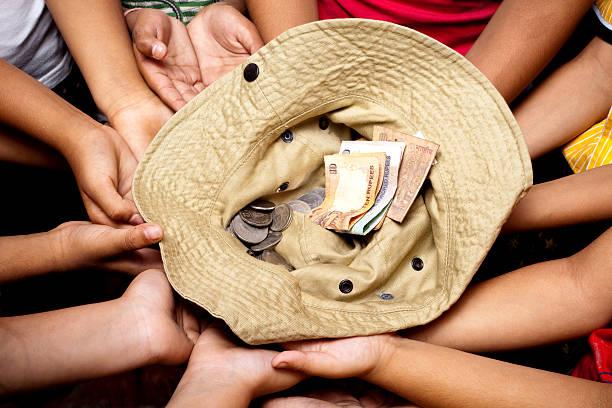Beggary meaning today is a relatively new term. A number of those interested in studies in the social, humanitarian and educational fields have referred to the term with its contemporary meaning, and their various definitions concluded that beggary is idiomatically begging for material help from people in public places and not; such as roads and shops, or pretending to make a payment; Or by staying in the streets and public places.
Beggary Methods
The methods of begging and the methods used in it vary according to the place and time, but the goal and purpose are the same, and among the most prominent methods of begging are the following:
- Gaining people’s sympathy by exploiting or faking illness and disability.
- Gaining people’s trust and deception by displaying false reports and documents.
- Attempting to cover up worn-out grooming, lack of hygiene, and claiming hunger and need.
- Exploiting children in ways that lead people to believe and help them.
- The use of supplications and words that motivate people to believe them, sympathize with them, and help them.
- Covering up the act of beggary by claiming to sell simple goods on the roadsides.
Kinds of Begging
Begging is generally classified into two types; Explicit and peaceful beggary by extending a hand only, and forced beggary may develop into robbery or theft, after the beggar persists in threatening and using physical force, and there are several types of begging, including the following:
- Apparent beggary : It is the apparent and announced beggary, which is by begging people by extending their hands in front of them.
- Inconspicuous beggary : It is begging that occurs through disguise behind the offer of symbolic services; Such as: wiping car windows, or selling some simple goods in public places.
- Emergency beggary: It is an accidental beggary that is due to an emergency circumstance; Like being evicted from the house, losing money, or as in the case of a person who has lost his way.
- Seasonal beggary: It is time-controlled beggary that is practiced on certain occasions and seasons only. Such as holidays, religious celebrations, and others.
- Compulsory beggary: It is the beggary that a person does under compulsion. As in the cases of children and women who are forced to beg.
- Voluntary beggary: It is beggary by the will of the person who performs it, and the person who practices it is characterized by high professionalism that enables him to earn materially.
- The beggary of the able: It is the beggary of people who are able to provide for their needs by work, but they choose to beg, and are subject to prosecution when arrested.
- The beggary of the incapable: It is the beggary of those who are unable to provide for their needs by work; Such as the sick, the disabled, and the mentally retarded, and those who practice this type of beggary are placed in social care homes upon arrest.
- Delinquent beggary: It is beggary to cover up the acts of theft and robbery. Everyone who commits it goes too far by using physical force, obscene speech and threats, and it is often practiced by misdemeanors and criminals.
Where are the Beggars?
Begging is a dangerous phenomenon whose effects threaten the security and safety of society. It is also an uncivilized and disturbing appearance. Therefore, it is necessary to treat this phenomenon , and limit its spread, which abounds in many public and private places, tourist and religious areas, in different seasons, and peak times, and the following are the most frequent places for beggars:
- Crowded sites in public places.
- Public transport and traffic lights.
- Commercial gatherings and markets.
- Churches, Mosques, cemeteries, shrines, and religious shrines. Hospitals.
- Tourist, archaeological, and recreational places.
- Sidewalks, stairs, parking lots, road junctions, plazas, and public bridges.
Effects of Begging
The following are the most important effects of beggary on society:
- Low productivity of community members who engage in beggary; Because they become unable to work or take responsibility over time.
- Reflecting a negative image of the country in general, and leaving a negative impression on tourists in particular, which leads them not to visit it again.
- High rates of theft and crime.
- Negatively affect national development.
Treating the Phenomenon of Beggary
Various laws must be enacted to reduce the phenomenon of beggary and to overcome and control the problem of poverty in all parts of the world, and the most important ways to treat beggary are as follows:
- Increasing funding for projects that help reduce the phenomenon of beggary.
- Providing suitable jobs for beggars.
- Establishing multiple programs to reduce the increase in poverty.
- Identification of officials to monitor the phenomenon of beggary from police and social welfare employees.
- Launching charitable programs to help beggars.



